DEGEN has quickly become one of the most recognizable communities in web3, uniting creators and users around the idea of rewarding participation and supporting genuine engagement. What began as an experimental token drop has grown into a broader movement focused on community, creativity, and sustainable social incentives.
In this conversation Jacek Trociński shares how DEGEN began, what inspired the upcoming DEGEN app, and why he believes tipping and engagement can help shape the future of social interaction.
Note: This interview has been edited for length and clarity.
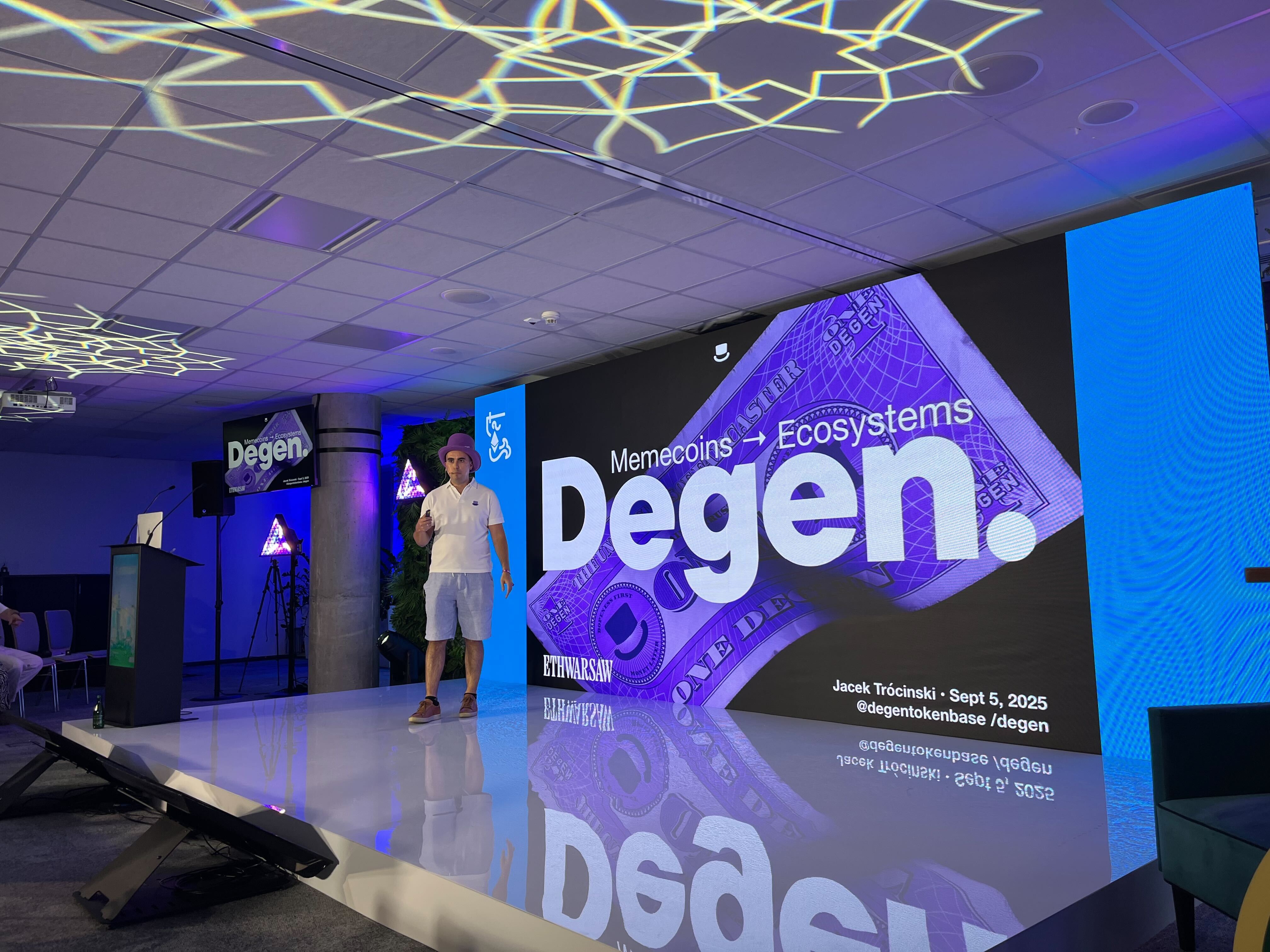
OpenSea: Let’s start at the beginning. How did you get into crypto and web3, and what led you to lead DEGEN?
Jacek Trociński: I first heard about Bitcoin in college after a news article about a price jump. That sent me down the rabbit hole. I learned, traded a bit, and hung out in IRC chats. After college I moved to Poland and started my career as a software engineer. I did not do much with crypto for a while, but I always wanted to work at a startup.
When COVID hit, remote work opened new doors. I joined a small crypto YC startup called hedgehog.app as one of the first employees. It did not grow very large, but it gave me hands-on exposure. After about three and a half years the company lost momentum. I liked the team and stayed as long as I could, but I was ready to try my own thing after ten years as a programmer.
OpenSea: What pushed you to finally take the leap?
Jacek Trociński: I went to my first crypto conference, DuneCon. I wanted to pitch an idea to Richard Chen, a VC I respect, but he was surrounded by people. I did manage to talk to the Dune CEO and CTO at an afterparty. The CTO told me how he reduced hours, then quit to build Dune full time. That story gave me the push I needed.
I had just left Hedgehog a week earlier. I took a month off, then started a project called channels.fun. It was similar in spirit to what friend.tech became on Base. Around that time I was active on Farcaster. In December 2023 I saw people in the degen channel experimenting with tokens. This was before token launchers and before Pump.fun. Alon, the founder of Pump.fun, was on Farcaster talking about building something. In the degen channel people started saying “I created a token, do you want to buy it?” and these tokens would hit half a million or even a million market cap in a day or two.
I was trying to pitch VCs in December and it was not going anywhere. So I created a token called DEGEN for the degen community on Farcaster. Other tokens kept failing because of bugs or because the founders rug pulled. I wanted to make a legit token and airdrop it to the community based on engagement. If you were active and getting likes on Farcaster, you got more of the drop. It took off fast and hit over $700M market cap by April. A full circle moment came about a month later when 1confirmation invested one million dollars to jump start DEGEN. Richard Chen is part of that fund. They remain the only official VC investor. It was a wild time.
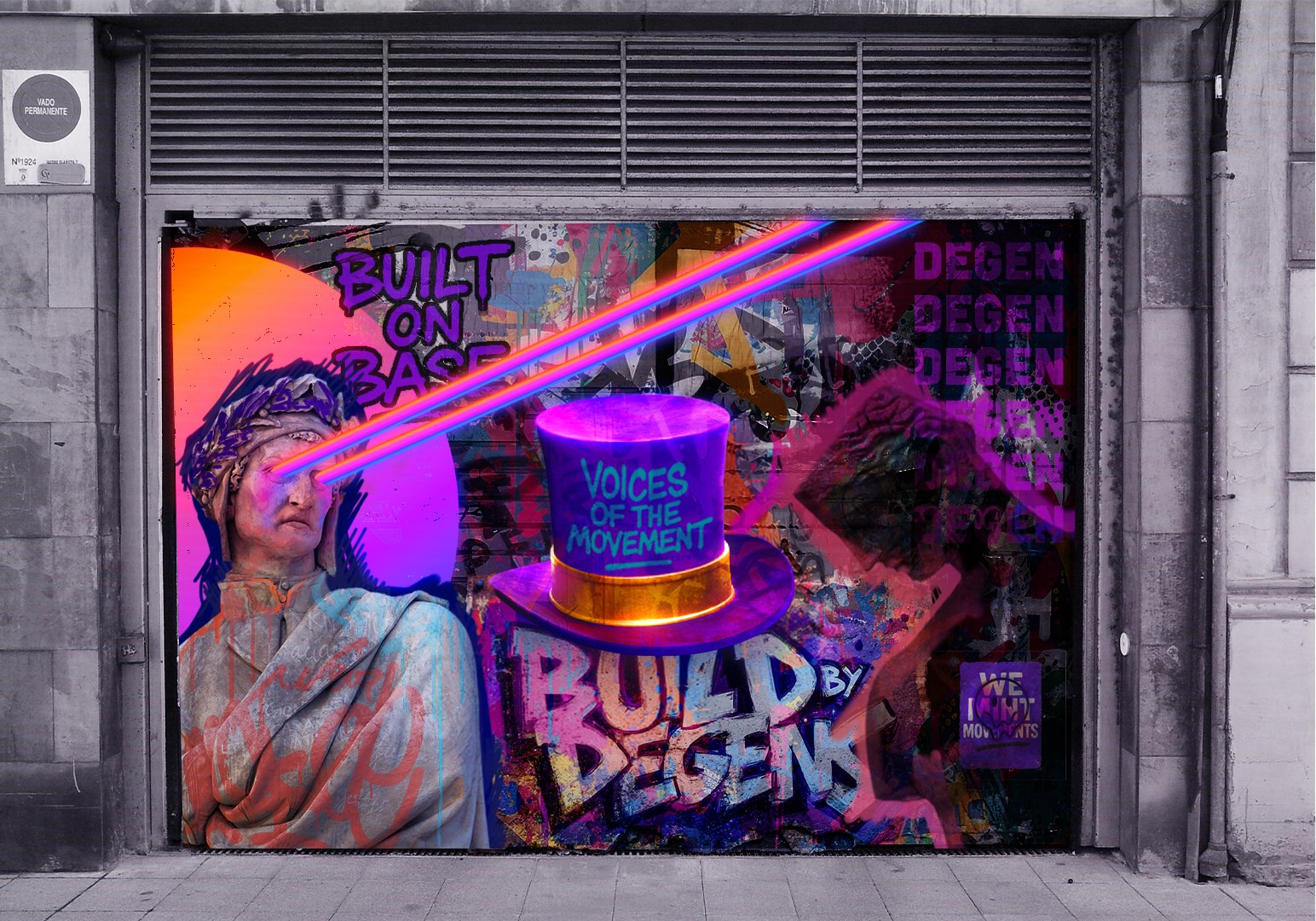
OpenSea: How did DEGEN evolve from an airdrop for Farcaster into what people call the social layer of crypto and the social layer of Base?
Jacek Trociński: Farcaster is a decentralized social platform with no native token. The idea behind DEGEN is to reward people for posting and contributing to the network. Across the internet creators build the value, but platforms capture most of the profits. Think Stack Overflow or forums where people answer questions for reputation points. The real value is the network and the people in it. You can clone features, but you cannot clone a community easily.
We wanted to flip some of that value back to the users. You can already see the industry moving in this direction. Pump.fun encourages posting and token creation. Zora rewards creative work. The Base app is exploring similar ideas. Farcaster sometimes runs weekly rewards. YouTube shares revenue with creators. We want DEGEN to be the reward layer for Farcaster creators, so we are building our own DEGEN app, a Farcaster client focused on communities and rewards.
OpenSea: The DEGEN app is launching in early November. What are the core features, and how do they serve the DEGEN mission?
Jacek Trociński: The November 5 launch is a classic social client built on Farcaster. While inspired by the Farcaster ecosystem, our app isn’t meant to mirror or replicate every feature. Instead, it offers its own unique experience built around the same core principles. They have been building for years. We have been building for about four months. Since Farcaster is an open protocol, anyone can build a client. Think of how multiple browsers implement the web standard or how you can use Outlook, Gmail, or Thunderbird for email.
Right now there is essentially one major Farcaster client, and the Base app is rolling out a client via the Coinbase wallet rebrand. DEGEN will be a meaningful community led client. Less corporate. Less VC flavored. Our focus is channels and topic based discussion, similar to Reddit. You do not primarily follow people. You follow topics. The main feed in DEGEN is made up of posts from the channels you follow, and we’ll keep doubling down by introducing even more channels over time.
DEGEN also includes an embedded wallet, with $DEGEN as the primary currency throughout the app, a nod to our roots in tipping and community-driven rewards. Over the last year and a half we airdropped roughly fifty million dollars worth of DEGEN to the Farcaster community to reward posting. Airdrops were effective but attracted farming. The app moves that incentive into a more sustainable loop. You hold $DEGEN in the embedded wallet and tip others. Tips act like a super like. The more tips a post receives, the higher it ranks in the feed. It is like a community powered promotion. If you tip your own post or a post you believe deserves attention, that spend carries more weight than a like or a repost.
We will keep experimenting with ways to encourage peer to peer support for great content and focus on building new and innovative systems that create a positive loop between content creators and their followers.
.png)
OpenSea: How do rankings and leaderboards work in DEGEN?
Jacek Trociński: The leaderboard shows the top tippers. Down the line we may highlight them with badges, special styling, access to features, or other recognition. The idea is to celebrate people who support creators. Tipping takes intention. You have to fund your wallet and choose to reward someone. We want to normalize that behavior on social platforms.
OpenSea: What does onboarding look like before and after launch day?
Jacek Trociński: There is a waitlist, and we plan an invite code system for the initial rollout. That lets us scale gracefully, fix bugs, and protect the experience. We have a small team. We will start with existing beta users and a broader pool with invites. When the app feels stable we will open it to the entire waitlist.
OpenSea: Is your audience mostly web3 native because of the Farcaster and degen overlap, or are you seeing newcomers too?
Jacek Trociński: Farcaster and the Base app lean into a wallet centric, web3 native audience. For DEGEN I want to reach regular people as well. I am not focused on convincing everyone who already uses Farcaster to switch clients on day one. Over time some will prefer a channel first client and move naturally. DEGEN, the token, also reached a mainstream retail audience during the 2024 memecoin wave. It is listed on major venues like Coinbase, Bybit, Binance Futures, and Revolut. Many of those holders do not know Farcaster well. So we have two groups. Crypto native users and a broader retail crowd that follows our social channels. The app aims to be friendly to both.
OpenSea: How do you see $DEGEN functioning inside the app, and what utility are you designing so holders and users want to keep using it?
Jacek Trociński: I like the Brave model with Basic Attention Token. Advertisers buy ads in BAT and users who view ads earn a share. That creates a useful loop. I think DEGEN can build a similar loop. I do not want to promise new airdrops. We already dropped a significant amount. Right now DEGEN is used for tipping. In the future we can expand utility in ways that only make sense in web3.
We believe in free-market systems and are thinking about how to bring those dynamics into social platforms. The goal is to surface meaningful information on profiles, content, and communities, helping decentralize moderation and create a bottom-up way of funding creators rather than the traditional top-down approach.
Think of it like this: when you go to a movie theater, you pay for the ticket, and that shapes the kind of content you get, very different from when an advertiser pays for it. We want to flip that traditional social model on its head. If, for example, Coca-Cola sponsored free LA Philharmonic concerts, the repertoire and even the venue would likely charge. Content is never truly free, someone always pays for it, and who pays determines the kind of content we all get.
For now the app uses DEGEN as the currency. No USDC and no ETH inside the core experience. The goal is to encourage a social economy that runs on DEGEN, similar to how Brave encourages use of BAT.

OpenSea: What are the biggest lessons and challenges from building DEGEN so far?
Jacek Trociński: Build as much as you can in house. External dependencies slow you down. Project management becomes critical. In crypto specifically, people want ways to earn. A lot of current games are zero sum. Advanced market participants capture value from less advanced ones. That can feel like a casino. I prefer a model that clearly rewards value creation. With tipping you are not promised a win. You choose to support a creator. Maybe you also get status, visibility for your posts. It is transparent.
Perpetual airdrops are not sustainable. They push the token toward zero. Speculation alone is also not a durable foundation. I want to route more value to the people who create content others love.
OpenSea: Where do you want DEGEN to be a year from now?
Jacek Trociński: I imagine an S curve. The early phase is slower as we find the right loop. The goal is a stable and growing user base that posts, tips, and finds real utility in DEGEN. Tipping also becomes a signal for ranking. A like is binary. A tip has depth because you choose how much to give. I am excited to see how that changes feeds once it scales. There is a lot of energy. I believe the next few years will be big.
OpenSea: Thanks so much, this has been great!
Jacek Trociński: Thanks, Hannah.
Disclaimer: This content is for informational purposes only and should not be construed as financial or trading advice. References to specific projects, products, services, or tokens do not constitute an endorsement, sponsorship, or recommendation by OpenSea. OpenSea does not guarantee the accuracy or completeness of the information presented, and readers should independently verify any claims made herein before acting on them. Readers are solely responsible for conducting their own due diligence before making any decisions.
.png)


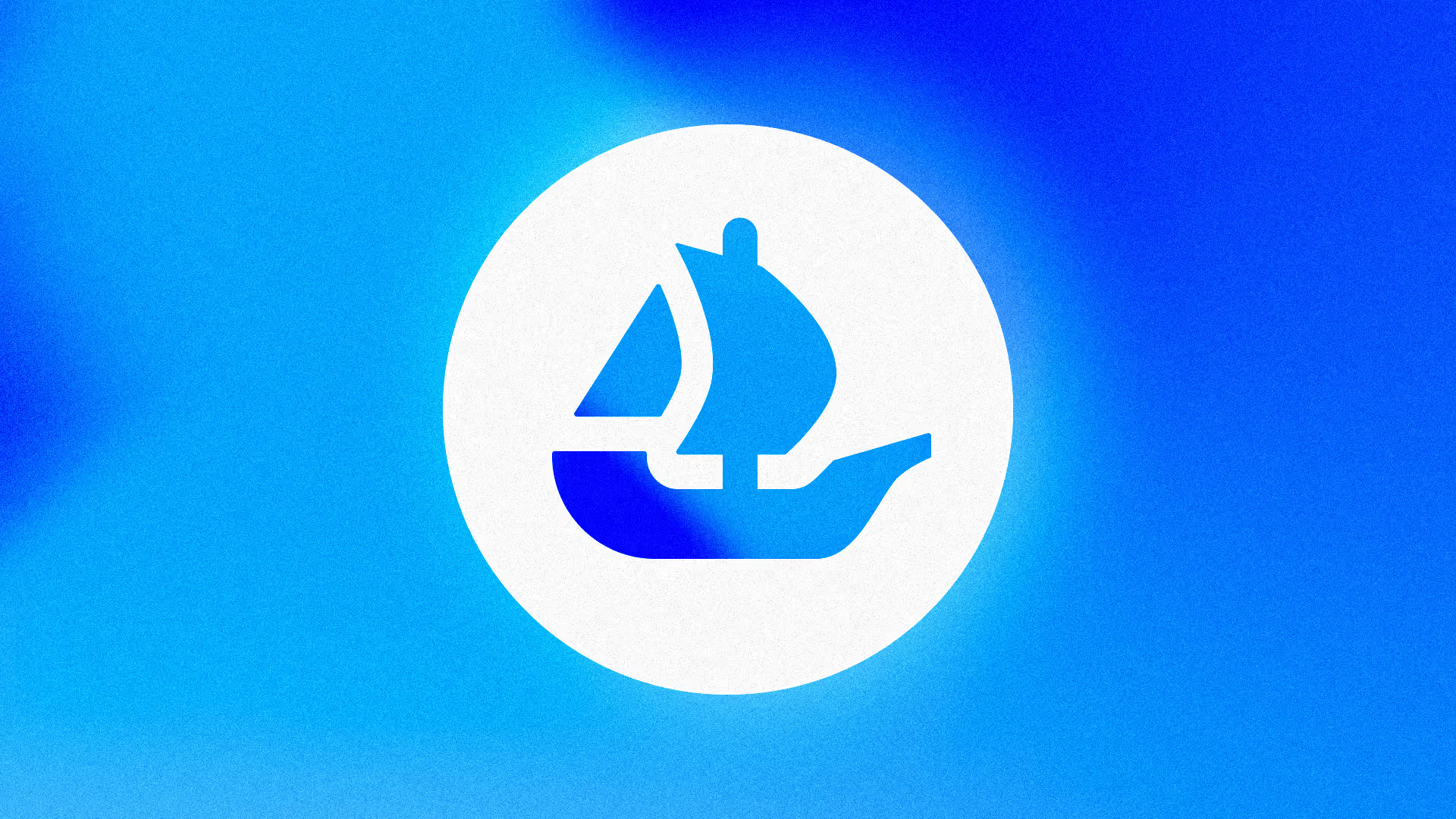

.avif)
.png)
.png)
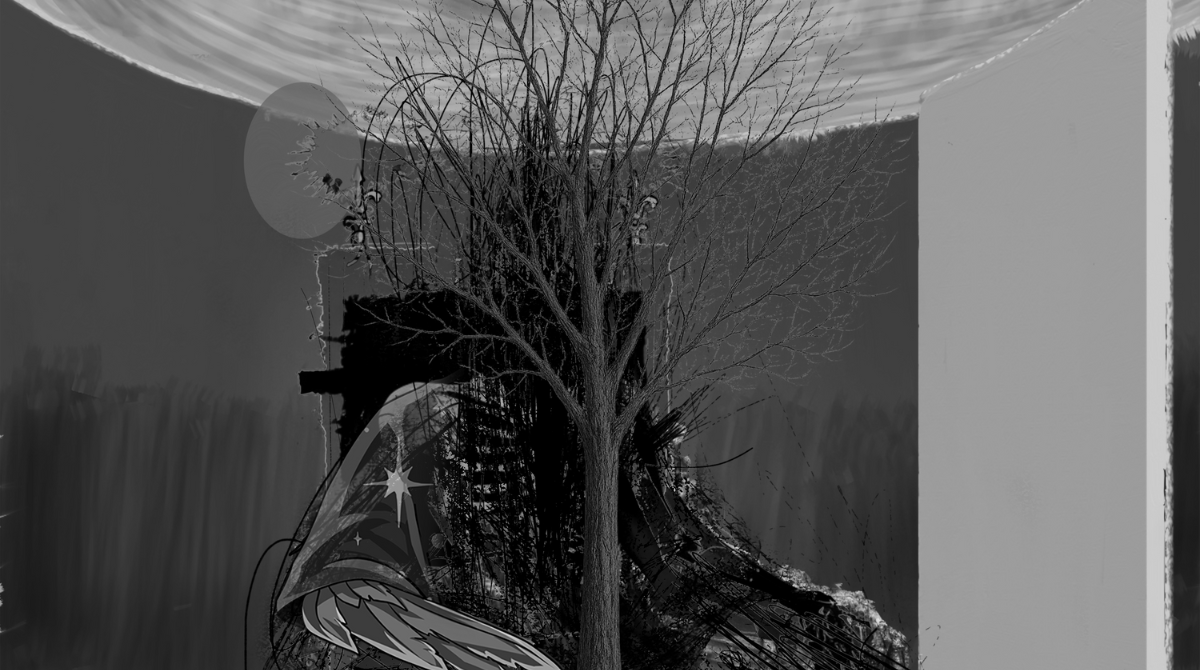

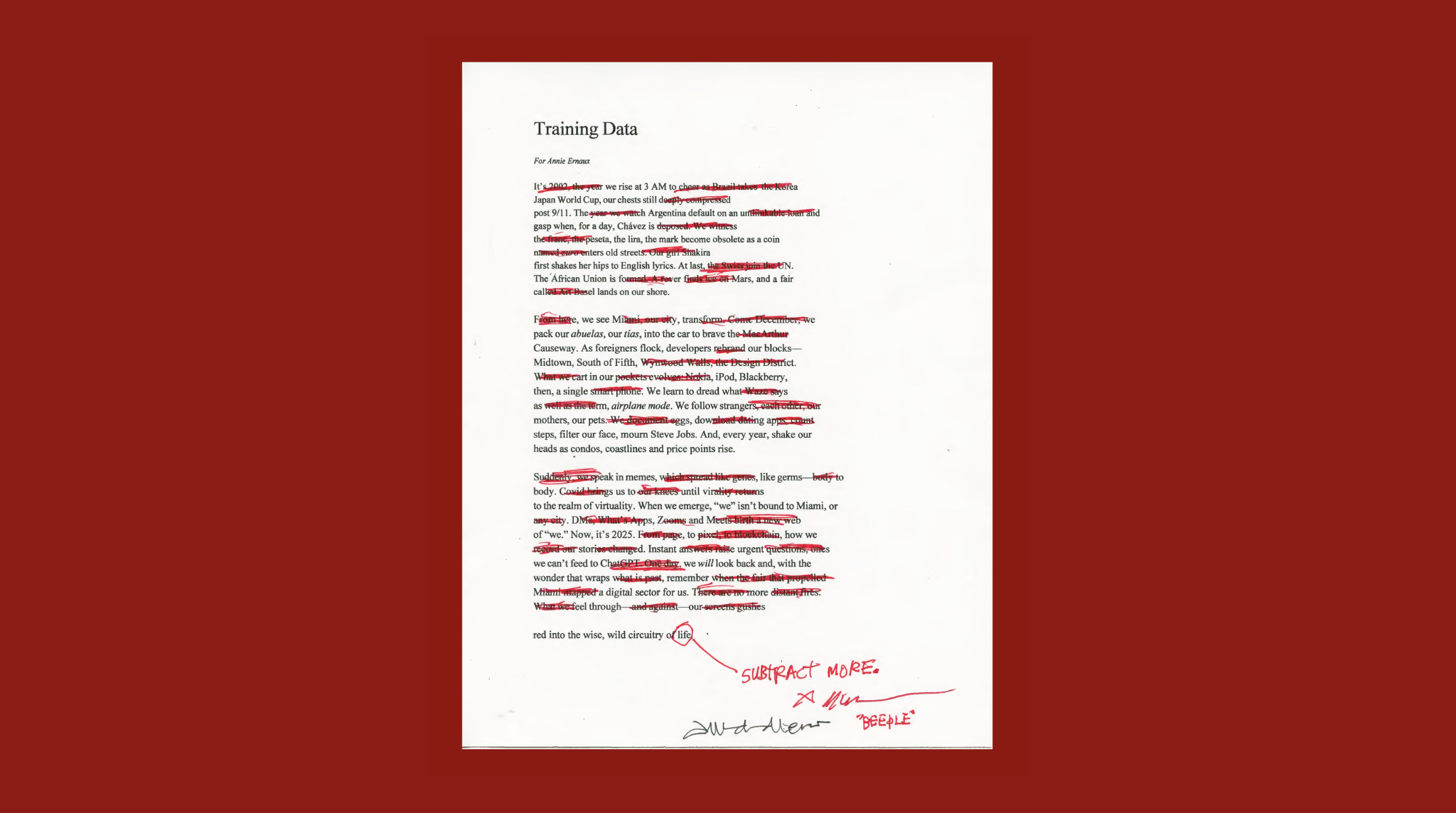
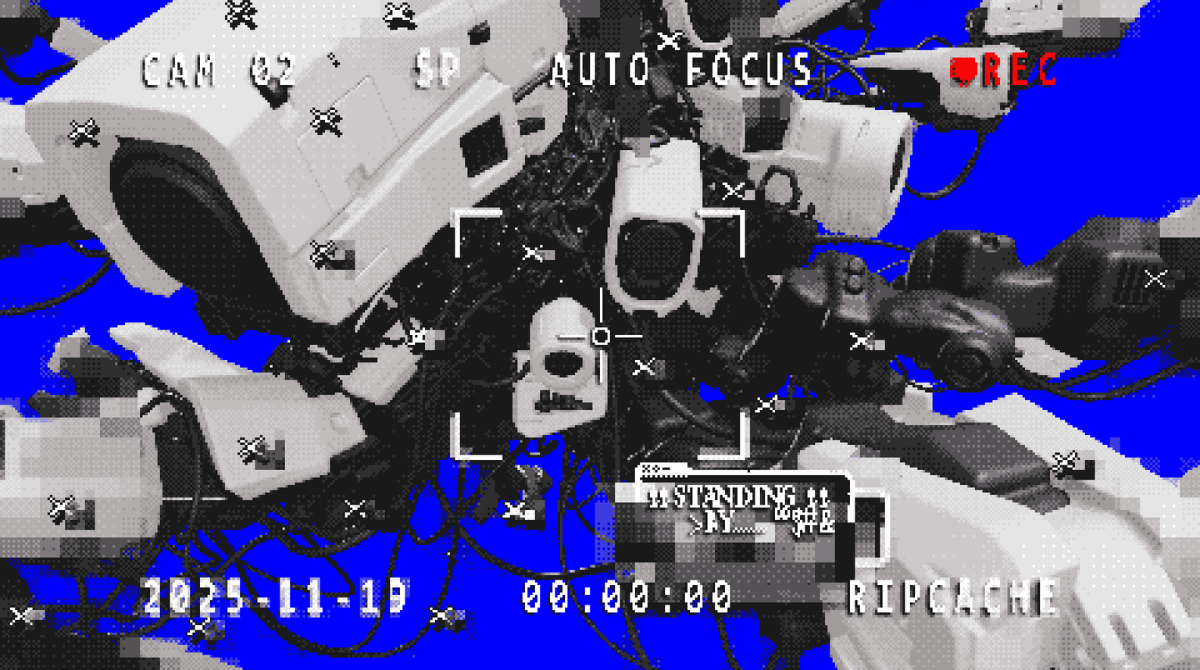
.png)
.png)